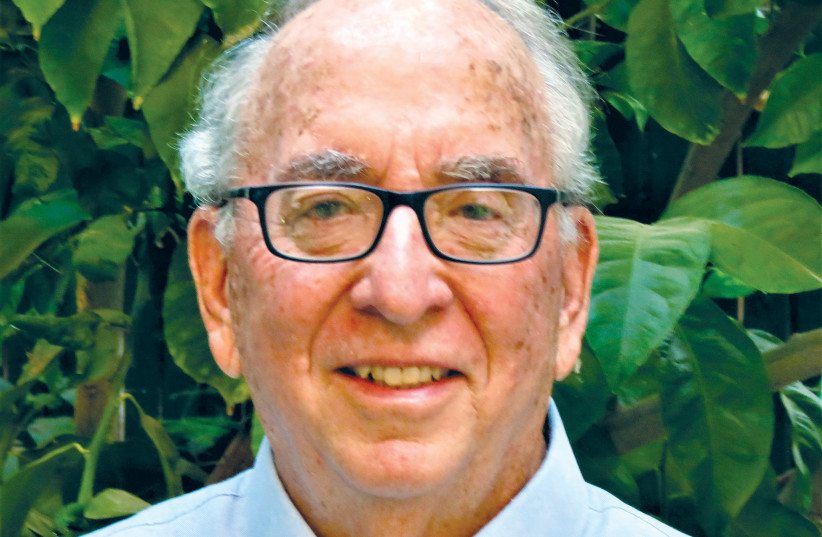Since the signing of the Oslo Accords, the peace treaty between Israel and Jordan, and the Wye River Agreement in the 1990s, efforts by politicians and diplomats to resolve the Israeli-Palestinian conflict have stalled. In the 21st century, according to Rabbi Ron Kronish, religious extremism, ultranationalist fanaticism, and intransigent leadership on both sides, fueled by competing narratives about the past and the present, meant “a war process replaced the peace process.”
According to Kronish, after then-opposition leader and Maj.-Gen. (res.) Ariel Sharon made a provocative visit to the Temple Mount, Palestinians launched a Second Intifada; the Israeli government constructed what it called a “security fence,” which Palestinians blasted as an “apartheid wall”; and, in 2005 prime minister Sharon ordered what turned out to be a disastrous withdrawal of Jewish settlers and the IDF from the Gaza Strip.
These developments, Kronish states in his book Profiles in Peace, have made peacebuilders “the only game in town.” The initiatives of the non-governmental organizations they established, he believes, provide the last best hope to influence decision-makers to reverse course and make compromises to ensure a just and lasting resolution to what is now regarded as an intractable conflict.
Can NGOs help decision-makers make peace?
Born in the US and educated at Brandeis University and Harvard’s Graduate School of Education, Kronish immigrated to Israel in 1979, four months after Israel and Egypt signed a peace agreement. In 1982, Kronish took to the streets, joining protests declaring the Israeli army complicit in the massacre of Palestinians in the refugee camps of Sabra and Shatilla in Beirut.
From 1991-2014, he served as the founder and director of the Interreligious Coordinating Council in Israel (ICCI). A harsh critic of what he calls the “militaristic, anti-Palestinian, pro-occupation” Likud Party, as well as PLO and Hamas terrorists, Kronish is the author of The Other Peace Process (2017).

In Profiles in Peace, Kronish reviews efforts by politicians to resolve the Israeli-Palestinian conflict since the 1967 Six Day War and provides biographical sketches of six peacebuilders – three Israelis and three Palestinian Arabs – and four members of a younger generation of activists.
Despite “overwhelming obstacles and complex challenges,” Kronish claims, these men and women have demonstrated that “enriching and energizing” relationships with perceived enemies can be forged, laying the foundation for a common future for Jews, Christians and Arabs.
Peacebuilders operate on the assumption that dialogue on subjects of mutual interest, undertaken in supportive settings, enhanced by precepts of trauma healing and conflict resolution, can empower individuals to bridge religious and ethnic differences. Hands of Peace, for example, brings Israeli and Palestinian teenagers to the US for four successive summers. In 2018, the Alliance for Middle East Peace created a Storyteller’s Project to enlist peacebuilding alumni, including Israeli and Palestinian soldiers, to share their experiences.
Again and again (Profiles in Peace, alas, is often repetitious), Kronish singles out initiatives to “get to know ‘the other’ deeply,” and take seriously his or her religious and historical narratives, as central to peace work.
Who are the activists?
KRONISH’S ACTIVISTS – Huda Abuarquob, Mohammed Dajani Daoudi, Munib Younan, Michael Melchior, Galia Golan, and Hadassah Froman – have certainly exhibited an abundance of courage, conviction, commitment, perseverance and resilience.
It’s less clear, however, how effective their efforts have been. Kronish does not address studies revealing that contact does not increase religious or ethnic toleration in “weak relationships.” And that self-selection is a significant (and therefore limiting) factor in forging enduring relationships with perceived enemies.
As Kronish and his peacebuilders acknowledge, moreover, the political context between Israel and the Palestinians has made free and unfettered interreligious and intercultural dialogue difficult to arrange. When Dajani, a professor of American studies and librarian at Al-Quds University, proposed taking 30 Palestinian students to Auschwitz and 30 students to a refugee camp in Bethlehem, a violent response to the trip led to his resignation and the cancellation of the project.
And neither Israeli nor Palestinian authorities accepted the recommendation of Bishop Younan’s Council of Religious Institutions of the Holy Land to revise textbooks in the schools.
Most important, during the last two decades, peacebuilders’ initiatives have not had a significant impact on Israeli or Palestinian politicians, or for that matter, on public opinion.
And so, it should not be surprising that, along with frequent expressions of hope, Kronish’s peacebuilders sometimes give voice to pessimism about the future. Given “the many forces of violence and opposition to what we are doing,” Froman declares her intention, somehow, to “create a small oasis of peaceful coexistence” in her area of the West Bank.
Convinced that “civil strife may one day lead to the end of Israel, regardless of the occupation,” Golan finds it “very difficult to be optimistic these days.” Although dialogue has broadened his horizons, Tareq Saman, one of Kronish’s younger peacebuilders, has concluded that “there is no solution to the Israeli-Palestinian conflict… It looks like one party will win and the other will lose.”
Responding in his prison notebooks to the rise of fascism in the 1930s, Marxist theorist Antonio Gramsci indicated he was “far from feeling beaten. It seems to me that… a man out to be deeply convinced that the source of his own moral force is himself… never falls into those vulgar, banal moods, pessimism and optimism. My own state of mind synthesizes these two feelings and transcends them; my mind is pessimistic, but my will is optimistic… I imagine the worst that could happen in order to summon up my reasons and willpower to overcome every obstacle.”
In all likelihood, Kronish does not endorse Gramsci’s pessimism of the intellect – even if the considerable obstacles in Israel, the West Bank and Gaza make it seem reasonable to do so.
The writer is the Thomas and Dorothy Litwin Professor of American Studies at Cornell University.
PROFILES IN PEACE
By Ron Kronish
L.E.A.R.H.N. Peacebuilding Publications
215 pages; $22.95
